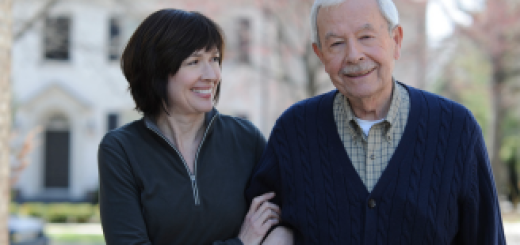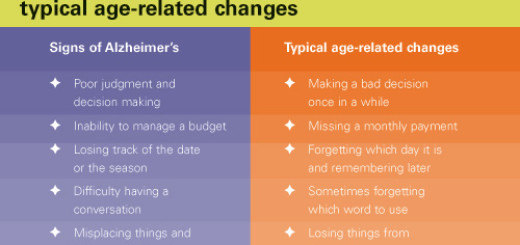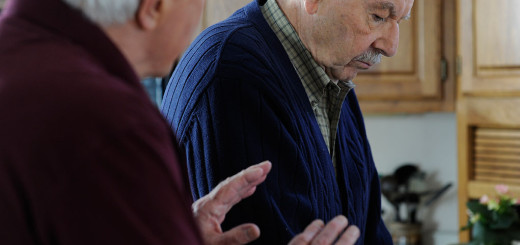Ask for help from adult children
Can you teach an old dog new tricks? I am about to test that hypothesis. I don’t blog, text or twitter, so maybe this moment in time will bring me closer to the twenty-first century! My name is Helen Doneux and I am a family therapist working with the Alzheimer’s Association as a Family Care Specialist. From time to time I will share here some of what I hear from talking with families and helping them through their journey.
Lately, I have taken several calls from an older spouse caring for their husband or wife with a form of dementia. I can hear it in their voice, and sometimes they even verbalize it: they are exhausted, sad and feeling quite alone. They do not feel they are able to provide the best care at home any more. Perhaps they are unable to sleep through the night because their spouse wakes up and sees imaginary scenes that frighten him or her, or they wander through the house. The caregiver dare not roll over and go back to sleep if a person with dementia wanders at night. So they too, get up and try to lead their loved one back to bed, or to comfort them if they are frightened. This might happen more than once in the course of the night. The next day, while the person with dementia might nap, the care giver is taking care of their home, shopping, cooking, paying bills while sleep deprived. They become exhausted over time and then their own health is in jeopardy. Yet, they do not ask for help.
I ask if they have adult children in the area. Yes, but “they have lives of their own and I don’t want to burden them;” or “My son and his wife both work and have two small children.” I often suggest that they could ask for some small assistance such as, “When you go shopping for groceries, could you pick up some things for us?” or, “Is there a Saturday coming up when one of you could come over and stay with Dad while I get a permanent?” For a caregiver to be able to get away for any amount of time and care for him or herself is a gift. The time spent with the person with dementia might also result in their son or daughter realizing what their elderly parent lives with 24/7. They might suggest hiring in-home help, offer to come over on a regular basis so mom can go out, or even – when the time comes – suggest that perhaps it is in both mom and dad’s best interests to make the move to a residential home.
Most parents do not want to burden their children. Most adult children would be willing to help but do not know what they can do for their parents. Parents who cared for their children through all their years growing up need to allow their sons and daughters to now be there for them. It is like the “paying it forward” concept; for one day those adult children will be the older parents.

















